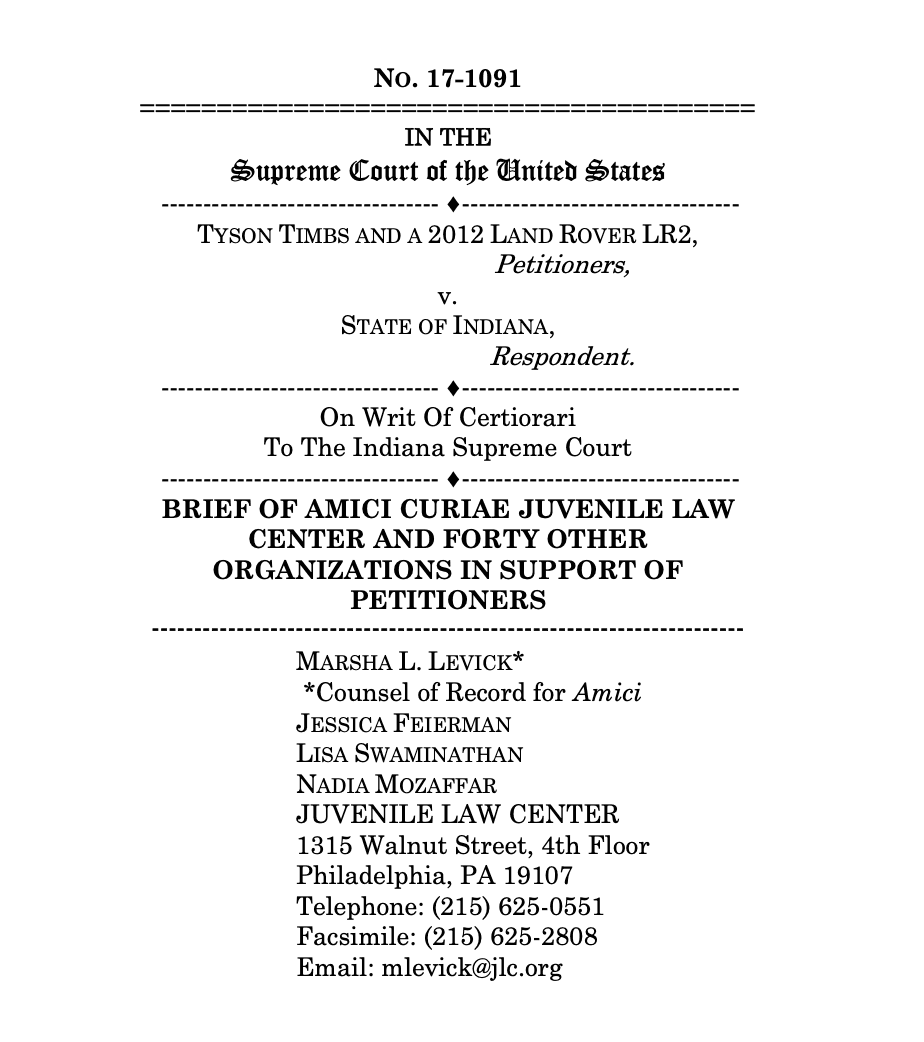
Summary of Argument
This case will have broad and serious implications not only for adults in criminal court, but also for thousands of young people across the country facing fines and fees in the juvenile justice system.
The purpose of the Eighth Amendment is to guard against government abuses in the imposition of punishment. Austin v. United States, 509 U.S. 602, 609-10 (1993).
A state court’s power to impose economic sanctions squarely implicates the concern with potential for governmental abuse of its power to “extract payments” embodied by the Eighth Amendment. Id. at 609-10. As Petitioner argues, the constitutional prohibition on excessive fines “is fundamental to our scheme of ordered liberty” such that it should be applied to the states. (Pet. Cert. 22 (citing McDonald v. City of Chicago, 561 U.S. 742, 767 (2010))).
Amici write separately to underscore that children across the country will also be at risk of serious harm and disproportionate penalties if the Excessive Fines Clause is not incorporated against the states. Juvenile justice fines are widespread, imposed against children and their families in all 50 states. They include traditional monetary sanctions or fines, imposed solely as punishment for a young person’s conduct, as well as penalties that ostensibly serve a remedial purpose, at least in part. Regardless of their form, juvenile justice fines can have devastating consequences for children and their families, including deprivation of liberty, interference with family property, and infringement on family unity. The impact is felt by children, as well as their parents, 3 siblings, and family members—who lack any culpability for the underlying offense.
The harsh effects of juvenile justice fines are at odds with this Court’s recognition of young people’s diminished culpability. Despite extensive jurisprudence reflecting this Court’s acknowledgment that youth’s immaturity may lead to impulsive behavior that is inherently less blameworthy than conduct attributed to an adult, see, e.g., Roper v. Simmons, 543 U.S. 551, 569-70 (2005), young people face these fines at all stages of the juvenile justice system.
Yet without a constitutional prohibition on disproportionately harsh punishments, states have little motive to reel in juvenile justice fines. The state courts that in some cases may have discretion to temper the harshness of monetary sanctions benefit directly from juvenile justice fines. This scenario is precisely what the federal Excessive Fines Clause aims to prevent.
Against this backdrop, Amici respectfully urge this Court to incorporate the Excessive Fines Clause of the Eighth Amendment against the states to secure the fundamental right to be free of excessive punishment.